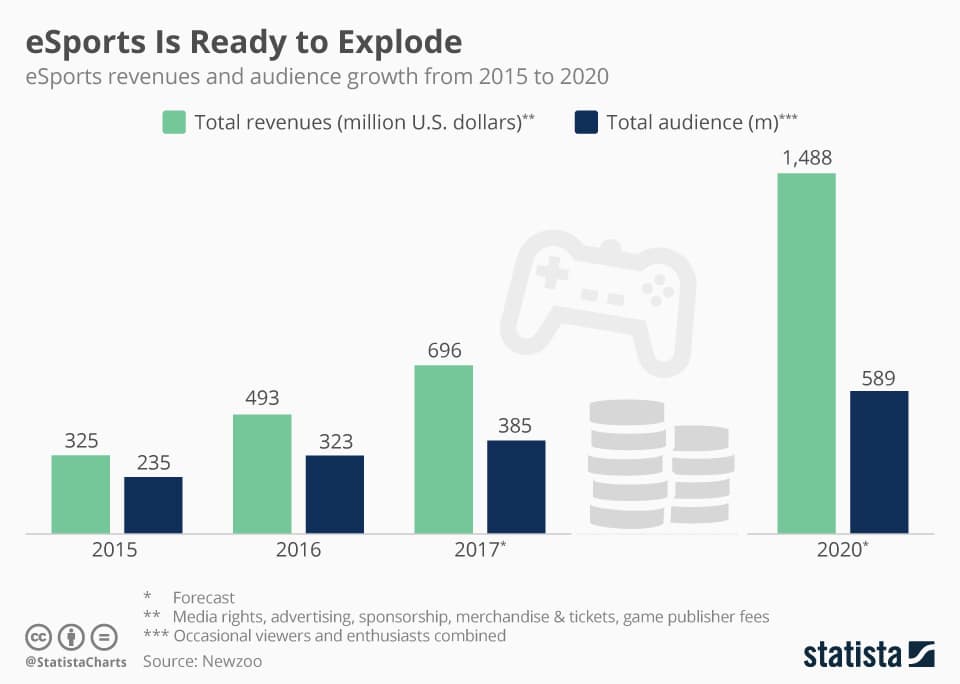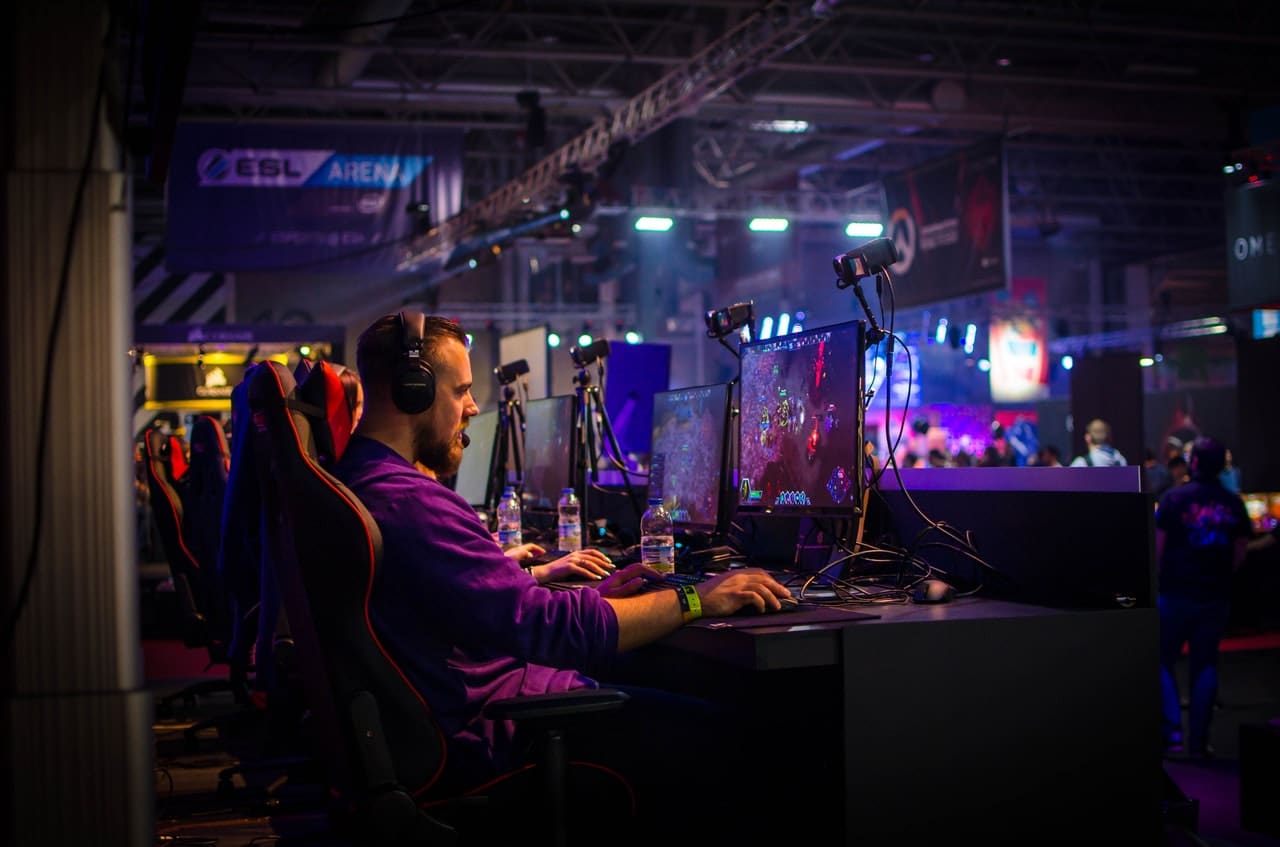The League of Legends is at the top of the list of the most played computer games on the planet. According to the developers, Riot Games, in 2016, there were a total of 100 million people playing every month. It is not only being played but also being streamed on Twitch. And have views of 99.19 million hours of LoL. This increasing desire to not just play but watch games is fueling the fame and popularity of eSports.
eSports Is Ready To Explode
The huge global audience and the competitive element has brought the possibility of people playing LoL professionally. It has quickly become the largest tournament, boasting of the first prize of 2 million U.S dollars in 2016. The future of the sport seems to be glowing even brighter with 43 million people streaming the finals. These figures mean that the world of eSports is destined to explode in the coming year. LoL is just one of the many online games termed to be the best online games and the industry forecast may generate revenues of up to 1.5 billion dollars by the year 2020 and building an audience of 589 million.
INFOGRAPHIC: STATISTA
Welcome To The Big Leagues
How big is the eSports arena? Why haven’t the media and entertainment companies picked up on it? Well, they have. eSports playing field has widened and continues to grow offering opportunities to media and entertainment companies looking to broaden their digital landscape. The success of LoL has led to the launch of three new slots in the North American franchise leagues: NBA 2K League, North American League of Legends Championship series and the Overwatch League. The new slots allow investors to purchase team slots for a whopping 20 million dollars with territorial rights.
This model signals a huge shift into the mainstream. The eSports system looks to become a full-fledged industry. And these reasonable expectations of broader revenue opportunities, longevity, and more distributed risk are all achievable. Imagine the economic fallout if the NBA decided to give up on professional basketball. Spending as much as 20 million dollars on a slot goes to prove that the leagues will be there for long enough to recoup all these investments and this, in turn, increases popularity and players and viewers stick with it.
Take The Shot
In April of 2018, the NBA commissioner took center stage at Madison Square Garden’s Hulu Theater announcing a list of new drafts. The commissioner spoke of the combination of both physical and mental skills, the commitment to their personal welfare. But to people’s surprise, the players called up on stage were neither NCAA champions or perfect 3 pointer jumpers. Rather they were professional eSport competitors who are certified by the pro basketball’s highest authority. The lucrative contracts entitled them to a house, relocation fees, insurance, a retirement fund, and a guaranteed salary.
The NBA 2K in 2018 established a 17-team roster, formalizing the NBA’s relations with the eSports and making it clear its desire to expand its audience.
eSports A Field Of Dreams
The recent developments represent a natural evolution. But an evolution to what? The last two decades have seen multiplayer competitive video games going global and spreading across the internet and social media. This, in turn, has aggregated large audiences of digital natives who have been nurtured by these virtual environments.
Online access greatly reduced the physical differences between individuals in the fantastic and aspirational world of eSports. Embracing the opportunities and challenges provided by eSports executives are offered the opportunity to help their businesses evolve with the audiences. This helps them meet the changes brought about by digital disruption. A fair warning has been sounded to business owners, cautioning them to understand more about the challenges before stepping into the eSports arena.
Companies are advised to understand their audience and showcase their own unique interests in the game. Businesses can partner with players, leagues or even teams leading to streamers and streaming networks.
Where Is The profit?
Audiences are spread across all social networks, streaming platform, and game worlds. Success pays dividends especially when they go viral.
The eSports demographic cries of hunger for merchandise and content. Most teams sell branded visual appearances, from virtual team jerseys to on-screen avatars. Executives should begin thinking carefully on the raw investments on eSports as an industry and all the media and technology that makes it possible.
If you are interested in even more entertainment-related articles and information from us here at Bit Rebels then we have a lot to choose from.


COMMENTS